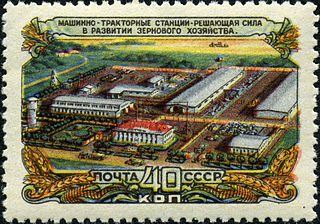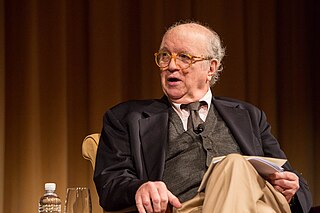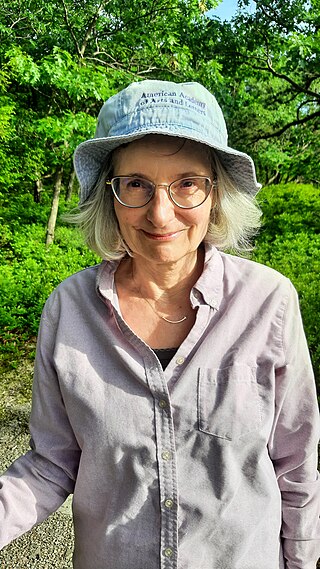
Nikita Sergeyevich Khrushchev was the first secretary of the Communist Party of the Soviet Union from 1953 to 1964, and Chairman of the Council of Ministers (premier) from 1958 to 1964. During his rule, Khrushchev stunned the communist world with his denunciation of his predecessor Joseph Stalin's crimes and embarked on a policy of de-Stalinization with his key ally Anastas Mikoyan. He sponsored the early Soviet space program and the enactment of moderate reforms in domestic policy. After some false starts, and a narrowly avoided nuclear war over Cuba, he conducted successful negotiations with the United States to reduce Cold War tensions. In 1964, the Kremlin leadership stripped him of power, replacing him with Leonid Brezhnev as First Secretary and Alexei Kosygin as Premier.

Stephen Jay Greenblatt is an American Shakespearean, literary historian, and author. He has served as the John Cogan University Professor of the Humanities at Harvard University since 2000. Greenblatt is the general editor of The Norton Shakespeare (2015) and the general editor and a contributor to The Norton Anthology of English Literature.

Anastas Ivanovich Mikoyan was an Armenian Communist revolutionary, Old Bolshevik and Soviet statesman. Having been elected to the Central Committee in 1923, he was the only Soviet politician who managed to remain at the highest levels of power within the Communist Party from the latter days of Lenin, through the eras of Stalin and Khrushchev, to his peaceful retirement under Brezhnev.

Sergei Nikitich Khrushchev was a Soviet-born American engineer and the second son of the Cold War-era Soviet Premier Nikita Khrushchev with his wife Nina Petrovna Khrushcheva. He moved to the United States in 1991 and became a naturalized American citizen.
Robert Bernard Alter is an American professor of Hebrew and comparative literature at the University of California, Berkeley, where he has taught since 1967. He published his translation of the Hebrew Bible in 2018.

The machine tractor station (MTS) was a state enterprise for ownership and maintenance of agricultural machinery that were used in kolkhozy. Each MTS was responsible for around 40 kolkhozy. The first ever MTS was organized in the Odesa Oblast. MTSs were introduced in 1928 as a shared resource of scarce agricultural machinery and technical personnel.

Dmitri Trofimovich Shepilov was a Soviet economist, lawyer and politician who served as Minister of Foreign Affairs. He joined the abortive plot to oust Nikita Khrushchev from power in 1957, and was denounced and removed from power. Rehabilitated after Khrushchev's downfall, he lived a largely obscure retirement.

David Levering Lewis is an American historian, a Julius Silver University Professor, and professor emeritus of history at New York University. He is twice winner of the Pulitzer Prize for Biography or Autobiography, for part one and part two of his biography of W. E. B. Du Bois. He is the first author to win Pulitzer Prizes for biography for two successive volumes on the same subject.
Brad E. Leithauser is an American poet, novelist, essayist, and teacher. After serving as the Emily Dickinson Lecturer in the Humanities at Mount Holyoke College and visiting professor at the MFA Program for Poets & Writers at the University of Massachusetts Amherst, he is now on faculty at the Johns Hopkins Writing Seminars.
Rafael Campo is an American poet, doctor, and author.

Thomas Byrne Edsall is an American journalist and academic. He is best known for his weekly opinion column for The New York Times, Previously, he worked as a reporter for The Providence Journal and for The Baltimore Sun, and as a correspondent for The New Republic. In addition, he spent 25 years covering national politics for the Washington Post. He held the Joseph Pulitzer II and Edith Pulitzer Moore Chair at the Columbia University Graduate School of Journalism until 2014.
Elizabeth Spires is an American poet and university professor.

The shoe-banging incident occurred when Nikita Khrushchev, First Secretary of the Communist Party of the Soviet Union, pounded his shoe on his delegate-desk in protest at a speech by Philippine delegate Lorenzo Sumulong during the 902nd Plenary Meeting of the United Nations General Assembly held in New York City on 12 October 1960.

Rosanna Phelps Warren is an American poet and scholar.
Major Jackson is an American poet and professor at Vanderbilt University. He is the author of six collections of poetry: Razzle Dazzle: New & Selected Poems 2002-2022, The Absurd Man, Roll Deep, Holding Company, Hoops, finalist for an NAACP Image Award for Outstanding Literature-Poetry, and Leaving Saturn, winner of the 2000 Cave Canem Poetry Prize and finalist for a National Book Critics Award Circle. His edited volumes include: Best American Poetry 2019, Renga for Obama, and Library of America's Countee Cullen: Collected Poems. His prose is published in A Beat Beyond: Selected Prose of Major Jackson. He is host of the podcast The Slowdown.
April Bernard is an American poet. She was born and raised in New England, and graduated from Harvard University. She has worked as a senior editor at Vanity Fair, Premiere, and Manhattan, inc. In the early 1990s, she taught at Amherst College. In Fall 2003, she was Sidney Harman Writer-in-Residence at Baruch College. She currently teaches at Skidmore College in Saratoga Springs, New York. Her work has appeared in The New Yorker, the Boston Review, AGNI, Ploughshares, Parnassus, and The New York Review of Books.

Collective leadership, or collectivity of leadership, was considered the ideal form of governance in the Union of Soviet Socialist Republics (USSR) and other socialist states espousing communism. Its main task was to distribute powers and functions among the Politburo and the Central Committee of the Communist Party of the Soviet Union, as well as the Council of Ministers, to hinder any attempts to create a one-man dominance over the Soviet political system by a Soviet leader, such as that seen under Joseph Stalin's rule. On the national level, the heart of the collective leadership was officially the Central Committee of the Communist Party. Collective leadership was characterised by limiting the powers of the General Secretary and the Chairman of the Council of Ministers as related to other offices by enhancing the powers of collective bodies, such as the Politburo.

Khrushchev: The Man and His Era is a 2003 biography of Soviet leader Nikita Khrushchev. Written by William Taubman, the book is the first in-depth and comprehensive American biography of Khrushchev. Taubman was the recipient of the 2004 Pulitzer Prize for Biography or Autobiography, as well as the 2004 National Book Critics Circle Award. The author spent almost 20 years researching the life of Khrushchev in preparation to write the book. Extensive research was made possible through access to archives in Russia and Ukraine, which were opened to the public following the collapse of the Soviet Union. In addition to printed materials and documentation, he spent time engaging Khrushchev's children and extended relatives, resulting in over 70 personal interviews. Taubman presents a historical narrative and study of the life of Nikita Khrushchev, the Soviet leader who succeeded Joseph Stalin. The book concludes with Khrushchev's death on September 11, 1971.
William H. Pritchard is an American literary critic and the Henry Clay Folger Professor of English, Emeritus, at Amherst College.













